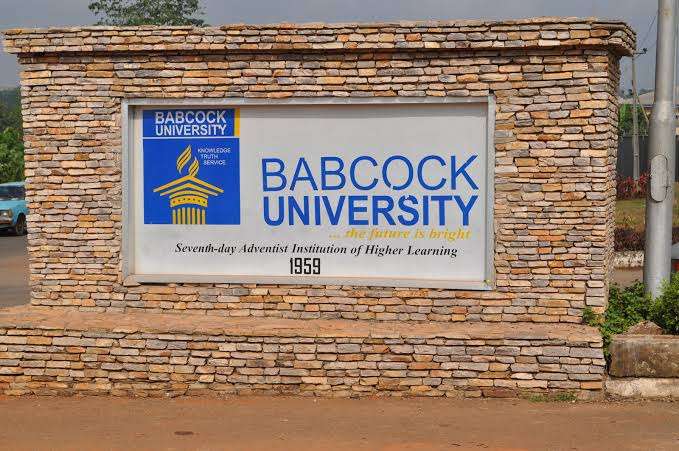Babcock University has unveiled a ₦1.5 billion Artificial Intelligence (AI) Resource Empowerment Centre donated by ICT training firm, New Horizons. The project was commissioned as part of activities marking the university’s 23rd Convocation Ceremony.
Speaking at the unveiling, Babcock University Vice-Chancellor, Professor Ademola Tayo, said the donation signifies a turning point for the institution, as it embraces the future of learning driven by AI, machine learning, and the Internet of Things (IoT).
He noted that with the world increasingly going digital, equipping both staff and students with practical digital skills has become not only timely but necessary.
“It is not just the cognitive knowledge alone, but what you can use your hand combined with your brain to do that matters now,” Prof. Tayo said.
“Because of the digital revolution in the world today, we feel it is high time for us to ensure that the university community is fully ready to contribute to the digital revolution and ICT.”
What This Means
The new facility, which boasts a 2,000-seat capacity, includes fully equipped innovation and incubation centres designed to train students across disciplines in tech-driven problem solving.
According to the Vice Chancellor’s, the building, outfitted with 300 custom-built all-in-one computer systems, each reportedly worth about ₦1 million, will function as both a learning space and a launchpad for student-led innovations.
“It is a good thing. Computer literacy is what drives every other profession,” Prof. Tayo noted. “This will give our students a competitive edge in the labour market because they will not just be knowledgeable about their areas of discipline, but also about other fields.”
He added that Babcock would continue to incorporate global developments into its curriculum to ensure its students remain globally relevant and competitive in the 21st-century workforce.
What You Should Know
For New Horizons CEO, Tim Akano, the donation reflects the organisation’s vision to ensure Nigerian universities are not left behind in what he calls the “Fourth Industrial Revolution.”
“We all know that the whole world is moving toward Artificial Intelligence, and we want to lead in that space. This is why we have taken our time to put the resources in place,” Akano said. “It is not the building alone; we are also commissioning the resources inside the building.”
He said that AI had been involved in all spheres of human endeavour, and further warned that countries or institutions that fail to embrace AI risk becoming obsolete.
According to Akano, New Horizons Nigeria has existing partnerships with six tertiary institutions in the country, including Bowen University and Redeemer’s University. With this initiative, Akano said, it hopes to scale its influence and deepen AI integration across Nigeria’s education landscape.
AI Adoption Trends
Africa’s AI market is growing rapidly. It is projected to expand at a compound annual growth rate (CAGR) of 26–27%, reaching an estimated $18–18.3 billion by 2031.
Universities are playing an increasing role in bridging the AI gap. Ahmadu Bello University (ABU), recently secured €5 million grant under the European Union’s Horizon Europe EUTOPIA to develop an AI-powered microscope to ease the diagnosis of neglected parasitic diseases in Africa.
Institutions like the University of Cape Town, and University of Pretoria in South Africa have also launched formal AI research units and frameworks, complete with policies for ethical use and faculty oversight.
Meanwhile, cross‑continental networks such as the African Research Universities Alliance (ARUA) support shared centers of excellence and collaborative AI workshops across 20 member universities.
Talking Point
The launch of Babcock University’s ₦1.5 billion AI Resource Empowerment Centre is a significant milestone in bridging Nigeria’s digital education gap.
By embedding artificial intelligence and emerging technologies into its academic infrastructure, Babcock is taking a bold step toward future-proofing its graduates.
At TechParley, we believe this kind of forward-thinking initiative is critical if Nigerian universities are to remain globally competitive. Practical exposure to AI, IoT, and machine learning is foundational for tomorrow’s workforce.
This also signals a growing trend where private sector players like New Horizons are stepping in to shape educational outcomes. It shows how collaborative models can fill key gaps in tech infrastructure across African institutions.
However, for long-term impact, it will be important to ensure sustainability. Will the equipment be maintained? Will faculty be continuously trained? Will students across departments truly have access? These are the questions that will determine whether this investment delivers lasting value.





